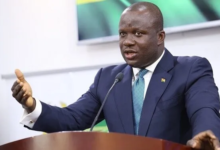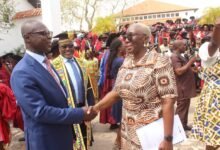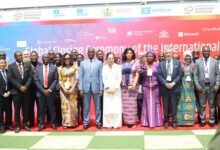Traditional, religious leaders urged to help abolish negative cultural practices
Traditional, Religious and Opinion leaders in the Upper East Region have been urged to help abolish negative cultural practices like child and force marriages and Female Genital Mutilation (FGM) that violate human rights.
The resource persons drawn from the National Commission for Civic Education (NCCE), the Department of Gender and Children, the Ghana Health Service (GHS) and the National Youth Authority made the call at a regional level Sensitisation Forum on Child marriage, Teenage Pregnancy and Gender Based Violence, held in Bolgatanga, the regional capital on Saturday.
The forum organised by the Regional Office of the Department of Gender, under the Ministry of Gender, Children and Social Protection with funding support from the United Nations Population Fund (UNPFA) and the Canadian Government, attracted stakeholders including Traditional and religious leaders and opinion leaders.
The event, on the theme “The role of duty bearers in preventing child marriage, teenage pregnancy, and gender based violence,” aimed at soliciting the support of the stakeholders particularly the traditional, religious and opinion leaders to help curb the spate of child marriage, teenage pregnancy and gender based violence in the region.
Addressing the stakeholders at the forum, the Regional Director of NCCE, Mr Pontius Pilate Baba Apaabey, schooled them that any culture that violated human rights was outlawed by the Constitution of Ghana.
He cited for instance that negative acts such as child marriage, forced marriage, FGM and Gender Based Violence were all in violation of human rights and could attract punishment from the law courts.
The Upper East Regional Director of the Department of Gender, Mr James Twene, impressed upon the traditional and religious leaders to endeavour to use their respective platforms to sensitise their respective communities to desist from negative cultural acts, particularly child and forced marriage.
He urged chiefs and religious leaders to use their influential positions to abolish negative cultural practices which were inimical to human rights and growth.
Mr Twene indicated that the forum was the fourth in the series and that similar programmes have been organised in the six beneficiary districts in the region.
He mentioned the beneficiary districts as Nabdam, Talensi, Bongo, Bawku West, Builsa South and the Kassena-Nankana West and noted that the project targeted adolescent girls, over 700 men and boys , staff from the Ghana Education Services, all at separate forums.
A midwife from the Regional Health Directorate, Ms Dora Kulariba, called on the participants to educate parents in their communities to take up their parental responsibility seriously by providing the needs of the girl-child.
The Upper East Regional Director of the Department of Children, Mrs Georgina Aberese-Ako, said it had been proven that most girls, after completion of their education and gainfully-employed, took good care of their parents than their male counterparts.
She, therefore, called on parents to do away with the cultural belief that girls after being taken good care of their education would go and marry elsewhere and would not cater
FROM SAMUEL AKAPULE, BOLGATANGA







